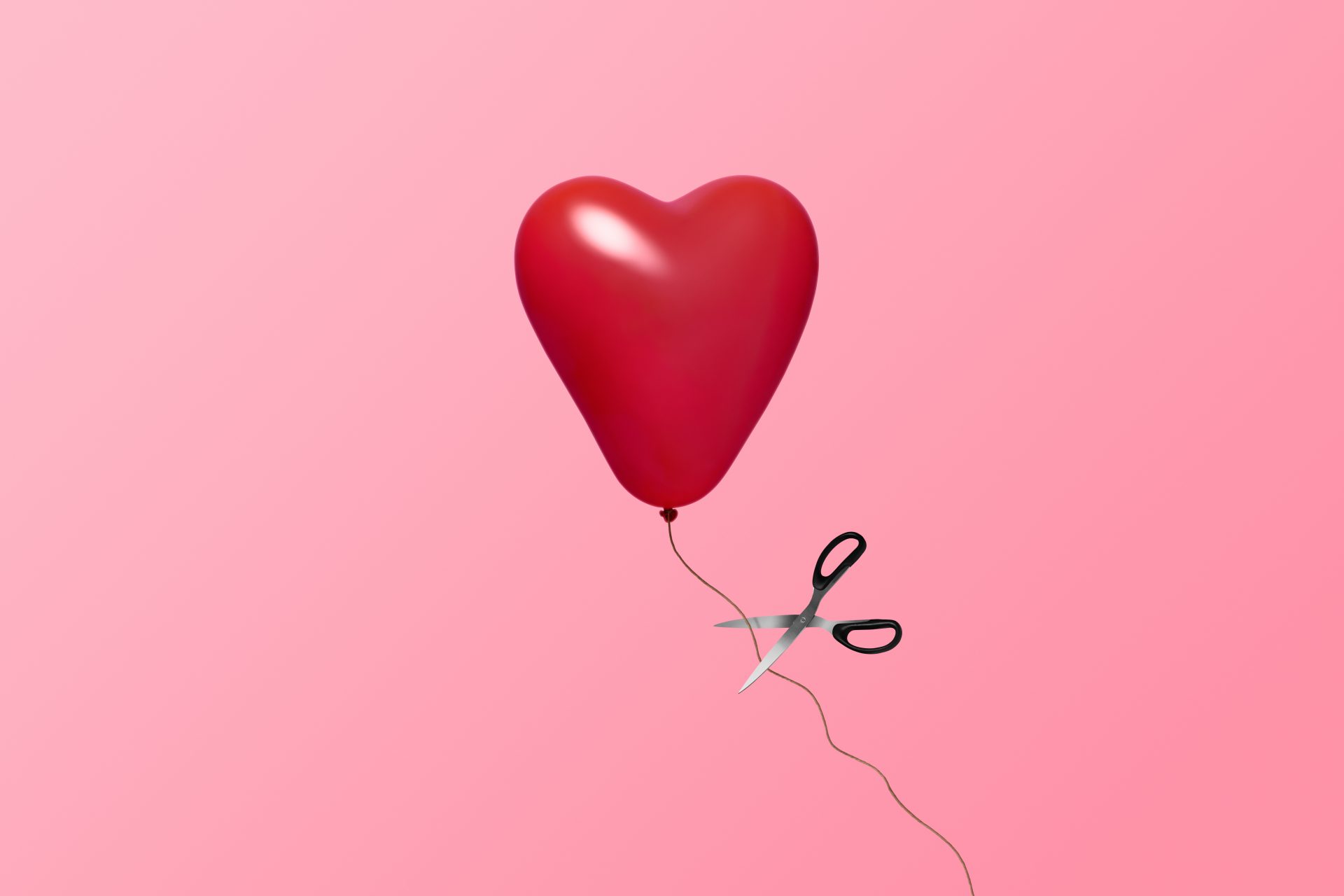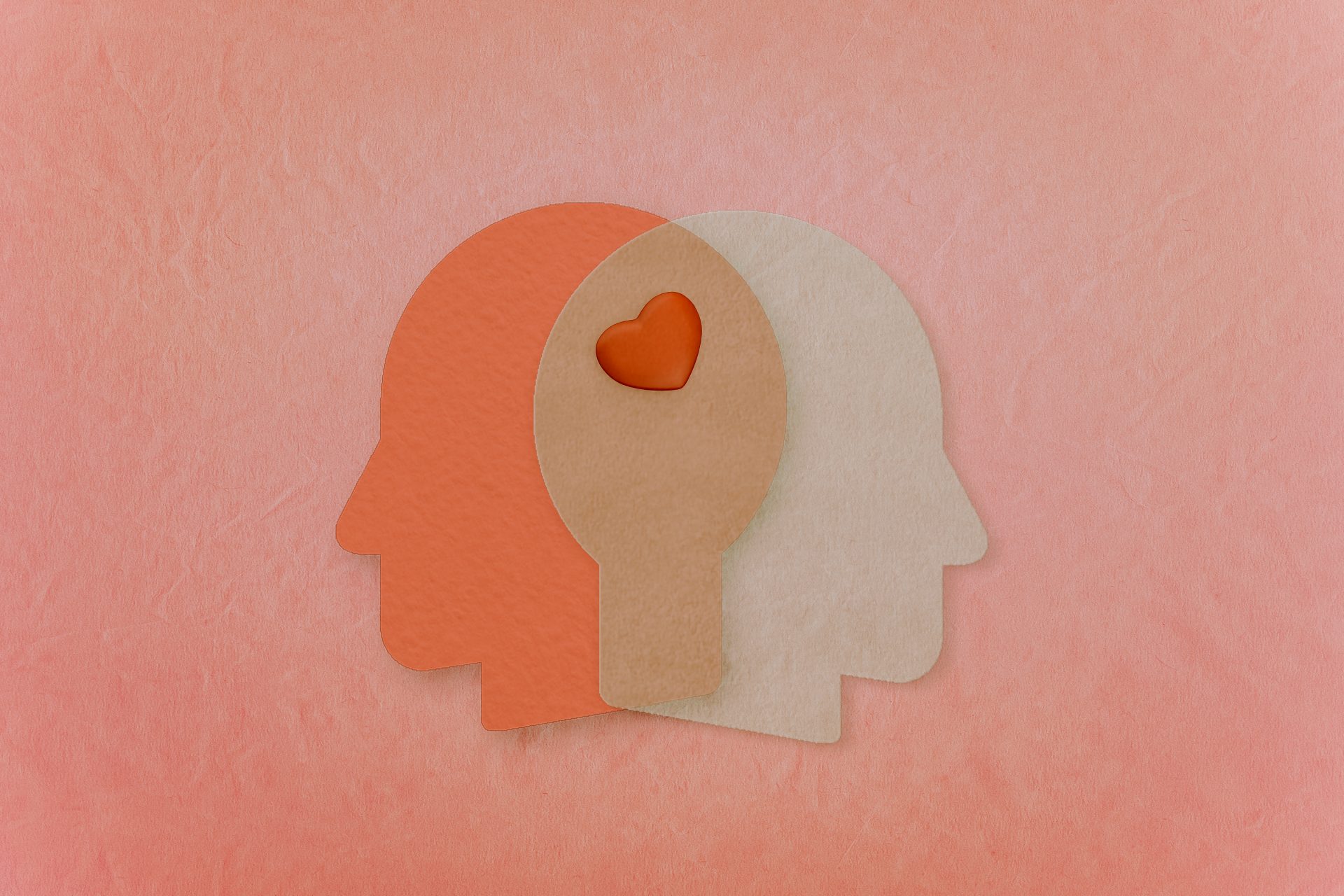“Am I a red flag?”: could our obsession with self-help be ruining our relationships?
Written by Amy Beecham
Twitter and Instagram have declared 2022 the year of not dating anyone who hasn’t been to therapy. But do we all really need it, or is our self-help obsession getting in the way of our own happiness?
It’s no secret that we’re in the age of optimisation. Everything from our wardrobes and our skincare routines to our emotional attachment styles is streamlined to the most ‘non-toxic’ version of itself, in every sense of the word.
While years ago we may have sought self-help advice from books, that fixation has now migrated into social media videos. We scroll for hours, learning how to identify red flags in our closest relationships and how to stage an intervention for someone on a destructive path.
It’s certainly a useful kind of enlightenment, and the knowledge we’ve gained has allowed us to reflect on situations in our past and learn from them. We now know the importance of boundaries and how to enforce them; we can theorise that our ex wasn’t just an asshole but actually a covert narcissist.
According to Pinterest, searches for prompts like ‘uncomfortable questions to ask’, ‘couples counseling worksheets’ and ‘healthy marriage tips’ have all increased by over 100% in the last year. While there’s clearly an appetite for even more emotional improvement, as we throw ourselves head-on into this culture of constant improvement, is there not even the smallest risk that we’re taking it too far? Is there actually such a thing as being too self-aware or therapised for our own good?
“Content on TikTok – or social media generally – around therapy is generally helpful because it helps to increase awareness around mental health and it encourages a sense of community,” says Dr Madeleine Mason Roantree, dating coach at the Maclynn Matchmaking Agency. “By normalising mental health difficulties it enables and encourages people to seek help.”
However, Roantree explains that the danger lies in thinking mental health or relationship issues can be solved in a few simple steps, as many videos suggest, when actually professional intervention may be required.
Relationship coach Liam Barnett agrees that, on some occasions, self-diagnosis can be more harmful than helpful. “While it’s never a bad idea to take a closer look at yourself or the behaviours of others around you, diagnosing yourself is the wrong way to go about self-healing,” he tells Stylist.
By self-diagnosing, we can easily get the wrong idea of what we’re actually experiencing, which leads to us getting our hands on the wrong kind of remedy. But even with professional therapy, can we run the risk of becoming too reliant on someone else to help us process our feelings?
“It’s all very well to spend time for self-reflection and honour self-development,” Roantree stresses.“Important as it is, there are instances where therapy becomes a crutch or a habit that is maintaining a belief that one can’t cope without therapy. Sometimes if all one does is introspect, one risks letting life slip by.”
Should we all be having relationship therapy?
More and more younger couples are now attending therapy at increasingly early stages of their relationships, with counselling charity Relate reporting a 30% increase in clients in their 20s and 30s since 2014 in the UK.
According to Dr Jeanina Mahrenholz of the Chelsea Pharmacy Medical Clinic, this is a good thing. “The stigma that therapy is only needed when someone is struggling should be broken,” she shares. “Therapy and coaching is for everyone, and all of us can benefit from the development of our current skills, sharing what’s on our mind and professional guidance.”
While Mahrenholz says we should be looking out for ‘green flags’ such as positive interactions, feeling safe, being comfortable setting boundaries and having similar values in our romantic relationships, she also advises trusting your intuition when it comes to seeking help.
“When you don’t feel like yourself anymore or you feel stuck or down, it is probably best to have a session with a therapist to evaluate the situation and get some guidance,” she explains. “Relationships are hard work and often people become detached or stuck because it doesn’t feel the same as in the beginning. But as I always tell couples, you have to keep dating. Remind yourselves why you connected and fell in the love in the first place, and build on that.”
Roantree agrees. “It’s possibly one of the most rewarding forms of therapy when you see two people rekindle their love and grow stronger as a result of facing their difficulties,” she says. “However, at Maclynn, we believe prevention is best and we are seeing an increase in clients coming to us for couples counselling – not because they are facing challenges in the relationship, but because they want to keep their relationship strong and avoid future conflict. Which makes perfect sense. Many people see a personal trainer because they want to maintain their healthy and fit physique. It’s the same principle with relationship therapy.”
Is there such a thing as too much counselling?
We’re more aware than ever that we should be reclaiming our peace, cutting off negative energies in our lives and not feeling guilty about quitting situations that don’t serve us. But love and relationships are also about give and take. Neither party will always act in a perfect, respectful way,so if we set our standards so high that almost everyone falls short at some point, are we not just gatekeeping our own lives?
Barnett says that while ‘too much therapy’ can be detected by a therapist, and unless an individual is compulsive about therapy and the idea of it, it can’t be considered ‘too much therapy’. Instead, he believes that we should change the mindset of ‘the therapist will fix it’ and instead focus on what we can do to make the relationship work as well. “The therapist or counsellor is a guide to help you, but they won’t get the entire job done for you,” he reminds us.
As Barnett says, the need for outside mediation or guidance comes in when there’s a repetitive pattern of issues and troubles within the relationship. “When the same issues are being discussed or attempted to be solved over and over, that is often a sign that something is stagnant and the couple or the people involved within that relationship aren’t realising it,” he adds.
If we can learn anything from the popular social media statement “I won’t date anyone that hasn’t been to therapy”, it’s that more than ever, we’re looking for partners who are emotionally available, which is possible without intervention. Just by listening to our partner’s needs, we can make some of the key changes required to ensure both of the people present in the relationship are happy and fulfilled.
Images: Getty
Source: Read Full Article

